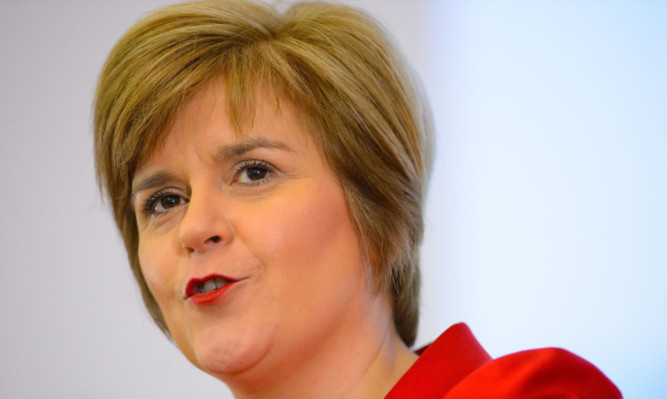“In 1979 we missed our opportunity and got Margaret Thatcher, industrial decline and the poll tax.”
That was an opening line from Nicola Sturgeon on Wednesday at the big set piece referendum debate hosted by the charismatic STV front man Bernard Ponsonby.
Scotland’s Deputy First Minister Nicola Sturgeon was a woman on a mission, to convert Labour voters to Yes.
Roll back 25 months, Yes Scotland launched with a big bang, raised a few eyebrows along the way, but undoubtedly had one clear message; the Yes campaign was about people not politicians representing all political colours and none.
I was part of the small launch team for Yes Scotland, which boldly told the media: “We have planted our tanks on Labour’s lawn”. Centre stage at the launch was former trade unionist Tommy Brennan, former Labour MP and MSP Dennis Canavan, and Labour card-carrying Hollywood actor Brian Cox (who had in recent years done the voice over for Scottish Labour adverts) to “talk about the journey they had taken” from supporting Labour to backing independence.
That journey has now been taken by thousands of Labour voters.
As you can imagine, it was with obvious greet cheer to hear the results of the YouGov poll out this week showing a big swing to Yes. But importantly that 30% of people who voted Labour in 2011 now intend to vote Yes. This is compared to 18% in a poll by YouGov, also the previous month.
This has been on the back of a very active Labour for Independence movement with some serious endorsements for independence including Pat Kelly, a former president of the Scottish Trades Union Congress and prominent Labour Party member.
A former Labour Government Minister declared his support for Yes urging Labour supporters to follow his lead. Leslie Huckfield, who served in James Callaghan’s government in the 1970s, says the direction being followed by both Labour and Tory government at Westminster is a compelling reason for Scotland to vote Yes.
On the campaign trail in Fife this week Labour people were out in force backing Yes, like Mary Lockhart an activist in Fife who was Chair of the Scottish Cooperative Party and an EU candidate for Labour in 2012.
There are many, many more.
And I’ve seen it closer to home. My dad’s side of the family are traditionally Labour supporters from North Lanarkshire, but they have moved to Yes. It’s not been quick but it’s evident.
Before at family occasions I was the rebel in the room who worked for that “nationalist” Alex Salmond. Now the pointed word or rap on the knuckles has been replaced with a quiet nod, a wee question about the white paper or even a pat on the back as more and more people come to realise independence is about progressive democracy not a political party.
Incidentally, or not, I actually think independence will be the saving grace of the Labour Party in Scotland.
The party could find its way back to its founding principles and could also overnight double its talent pool having to keep its political talent in Scotland at Holyrood instead of sending them to Westminster.
One thing is clear, Scotland is on a massive journey and invigorated by this debate, that includes voters from all parties and one, and importantly tens of thousands of new voters, which is a wonderful achievement for our democracy as a nation.
Keeping up their momentum, the Yes campaign announced a bold target to achieve backing from a majority of Labour voters for Yes on Wednesday.
And on the back of this, Labour stalwarts Gordon Brown and John Reid launched a new bid to recapture Labour voters who are now backing independence, reported to have substantially increased their campaigning schedules. Clearly they are rattled.
Voters are recognising the potential of a Yes vote to help stop the drain of 70,000 Scots leaving each year with job-creating powers, or maybe like my professional female pals who want to both reach the top of the career ladder and have a family so need childcare provision transformed, or those who want the powers to deal with the fact a million Scots are in poverty so we can stop the unfair welfare cuts and better steward our wealth.
The social union that unites everyone across the British Isles will continue but Scotland’s democratic deficit will end.
People are waking up to the realisation that with the responsibility of independence we can have the opportunity to stop Tory governments pursuing a privatisation and cuts agenda affecting Scotland, and stand up for the principles of social justice that Scotland holds dear.
The first elections for a Scottish Government in May 2016 will be the one where you vote for the party of your choice to govern an independent Scotland.
This is different. Whether you normally put your cross beside Labour or another party, remember this is a referendum and one which has no party colour, it is simply about a future with us in charge.
